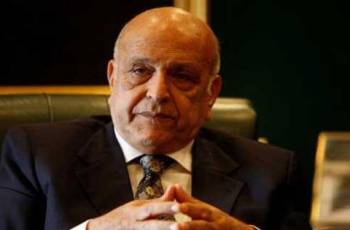Egyptian businessmen eye opportunities in South Sudan
March 23, 2013 (KHARTOUM) – The head of the Egyptian Businessmen Association (EBA) Hussein Sabour said that the body is currently exploring potential investment opportunities in South Sudan and projected that the latter has the potential to be an economic powerhouse.

Sabour explained that businessmen from the two sides will exchange visits during the first half of this year. He pointed out that South Sudan is still a virgin state with huge potential for profits especially in sectors like construction and building materials, agriculture and trade.
The Egyptian businessman mentioned that homes in Juba are built of tinplates and there is no water or sanitation systems in place and thus any investment initiative will have a positive impact.
The oil-rich South Sudan officially joined the international community as the newest independent country in July 2011.
Egypt has traditionally opposed the breakup of Sudan fearing a negative impact on its Nile water share but nonetheless swiftly recognized it.
South Sudan is considered one of the poorest nation on earth as a result of two-decades civil war and is now having to start from scratch to build institutions that could run the nation.
An oil shutdown from January imposed by the landlocked South Sudan in retaliation to Khartoum seizure of its oil has strangled the flow of dollars into an economy that produces almost nothing else, and sent the South Sudanese pound tumbling against the greenback.
This has hiked the costs of everything from fuel to cooking oil, rice, charcoal and bananas. It is forcing the government to cut education and health spending in a state whose development indicators were already near the foot of world rankings.
Juba has been working on encouraging foreign investments particularly from the west and rich Arab nations.
Sabour said that South Sudan suffers from extreme poverty but possesses vast natural resources which could enable it to become a great economic power. He went on to say that the barter system could be useful in dealing with Juba because it does not have the money to pay for the investments and pointed out that South Sudan owns 38 million heads of cattle and thus it could be a major source of red meat for Egypt.
However he stressed the need for establishing Egyptian Embassy in South Sudan in order to facilitate the entry and exit of Egyptian investors in addition to strengthening Egyptian relationship with Juba.
He said that while China and Israel have preceded Egypt in entering South Sudan market, but Egypt still has a competitive advantages that allows it to penetrate this market emphasizing that South Sudan is in need for Egyptian products.
(ST)
